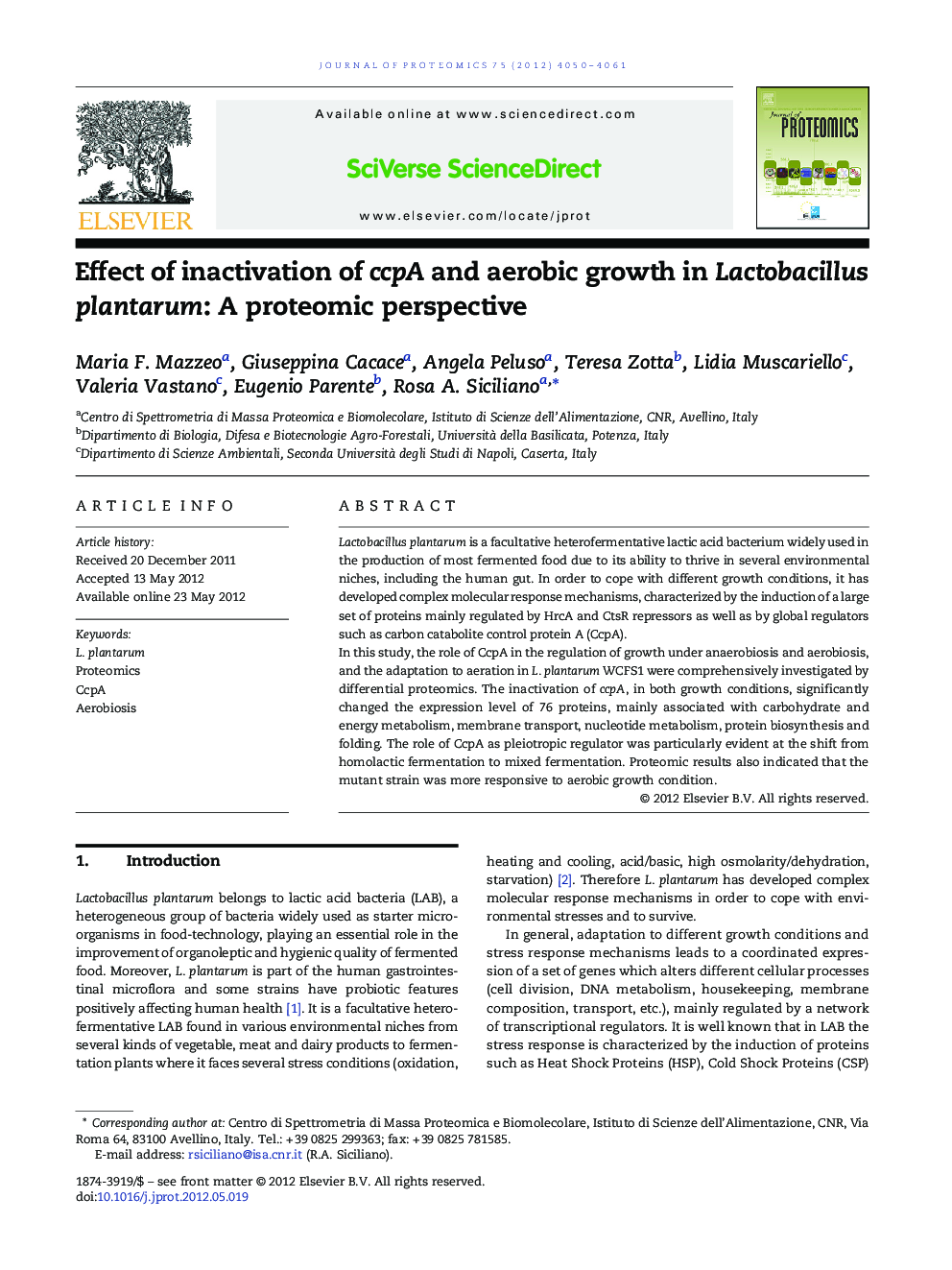| Article ID | Journal | Published Year | Pages | File Type |
|---|---|---|---|---|
| 1225838 | Journal of Proteomics | 2012 | 12 Pages |
Lactobacillus plantarum is a facultative heterofermentative lactic acid bacterium widely used in the production of most fermented food due to its ability to thrive in several environmental niches, including the human gut. In order to cope with different growth conditions, it has developed complex molecular response mechanisms, characterized by the induction of a large set of proteins mainly regulated by HrcA and CtsR repressors as well as by global regulators such as carbon catabolite control protein A (CcpA).In this study, the role of CcpA in the regulation of growth under anaerobiosis and aerobiosis, and the adaptation to aeration in L. plantarum WCFS1 were comprehensively investigated by differential proteomics. The inactivation of ccpA, in both growth conditions, significantly changed the expression level of 76 proteins, mainly associated with carbohydrate and energy metabolism, membrane transport, nucleotide metabolism, protein biosynthesis and folding. The role of CcpA as pleiotropic regulator was particularly evident at the shift from homolactic fermentation to mixed fermentation. Proteomic results also indicated that the mutant strain was more responsive to aerobic growth condition.
Graphical abstractFigure optionsDownload full-size imageDownload high-quality image (403 K)Download as PowerPoint slideHighlights► ccpA inactivation significantly changed protein expression pattern. ► CcpA and aerobiosis affected the shift from homolactic to mixed fermentation. ► ccpA inactivation led to the over expression of HPr, the main CcpA cofactor. ► ccpA inactivation led to the down regulation of pyrimidine biosynthesis (pyr operon).
